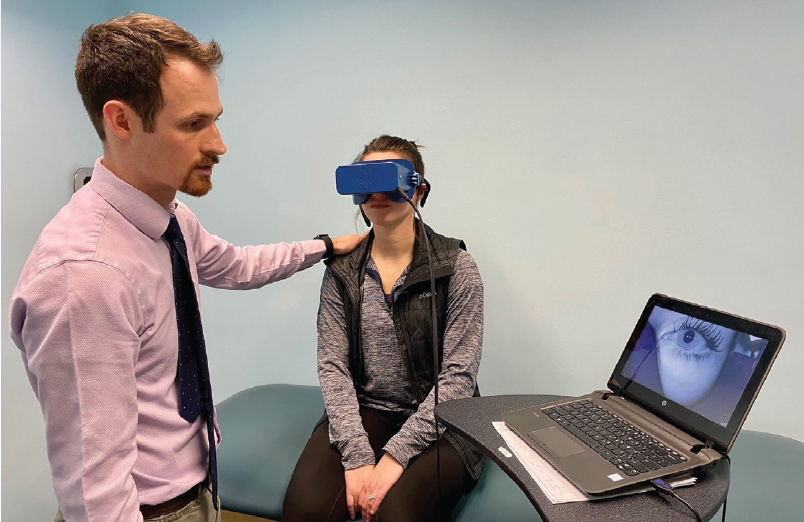Vestibular Agnosia (VA)is a newly recognized condition in the brain that results in loss of vertigo perception and postural imbalance. This means there is a disconnect in the brain’s electrical wiring; the white matter tissue has reduced transmission, and therefore, the brain doesn’t recognize dizziness symptoms. VA can cause vertigo and balance problems, spatial and motion perception issues, and coordination problems.

In the case of Benign Paroxysmal Positional Vertigo (BPPV), the brain doesn’t acknowledge vertigo-spinning symptoms. However, patients can still have a postural imbalance that can be associated with a fall. BPPV is associated with an increased incidence of falls, especially in our elderly population. Patients with BPPV normally have an attack of vertigo and feeling off balance. Patients with VA who may have BPPV don’t get that warning spinning and have sudden falls or changes in postural control because the brain isn’t providing the proper signals to interpret vestibular input and prevent a fall.
To rule out BPPV, it is important to get a thorough Vestibular evaluation on anyone with sudden falls. Though the perception of vertigo is not present in these patients, the neurological response of nystagmus is apparent on evaluation, and your Vestibular Therapist can effectively treat it with an Epley maneuver in the same way normal BPPV is treated.
Wendy Webb Schoenewald, PT, OCS,
WWS Physical Therapy and Vestibular Rehabilitation
Doylestown, PA.
(215) 489 -3234






